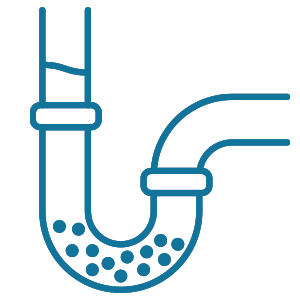A blocked drain is not only an annoying household problem, but it is also one that requires immediate attention. If you are experiencing a blockage, click here to contact a reliable drainage specialist to help you resolve the issue. This is because leaving it can lead to a number of issues, ranging from bad smells and unpleasant water damage to serious structural problems.

Signs that You have a Blocked Drain
The most common signal of a blocked drain is slow draining water, either in your sink or bathroom. Another sign is gurgling noises coming from the pipes; this occurs when air has been trapped by the obstruction. There may also be an overflow of wastewater that exits manholes or grates. In some cases, there could be wastewater coming back up the pipes which is a clear indication of a blockage.
Reasons for Blocked Drains
There are several causes for blocked drains, such as: objects that have been flushed down the toilet, fat or oil build up, tree roots blocking access, crushed pipes due to soil movement or even age-related pipe decay. It is important to identify the source of the blockage so that the right solution can be applied.
DIY Solutions For Blocked Drains
If the blockage is less severe, you may be able to resolve the issue yourself. You can try using an auger (also known as a plumbing snake) to free the obstruction. Pour hot water down the drain and then use a plunger to dislodge the clog. Make sure to fill the sink or basin with some water before attempting to unblock it.
Professional Help
In more complicated cases, it may be necessary to call in a professional drainage specialist. The advantage of having a professional take care of the problem is that they have the expertise to quickly diagnose the issue and suggest the best solution. They may also be able to carry out CCTV inspections to determine the cause of the blockage.
Preventing Future Blockages
Once the problem has been solved, it is important to take preventive measures against future blockages. Avoid disposing of non-biodegradable materials, such as plastics, down the drain. Install strainers on sinks and showers to prevent items from going down the drain. As well, avoid pouring cooking oils, fats, and grease down the sink since these can accumulate and create obstructions. Finally, ensure that you routinely get your drains serviced.
Blocked drains should never be taken lightly, as they can lead to additional complications if not addressed promptly. Even if you are able to unclog the drain yourself, keep in mind that severe blockages will require professional assistance. A reliable drainage specialist will be able to quickly identify the issue and suggest a suitable solution. So if you ever experience a blockage, make sure to click hereand contact your local drainage specialists.
Blocked drains can be a major inconvenience and potentially create a major health hazard. Blocked drains are usually caused by an accumulation of dirt, debris, hair, and other items that are not meant to be in pipes. These build up over time, leading to a blockage. If a blocked drain is left untreated, it can lead to overflows that cause extensive property damage, possible health issues, and foul odors. Fortunately, blocked drains can usually be cleared up easily with a plunger or using a special chemical drain cleaner. If the blockage persists, it may be time to call a plumber.

